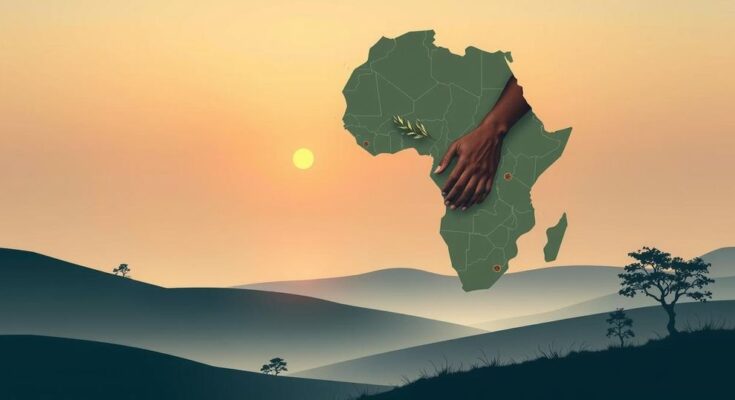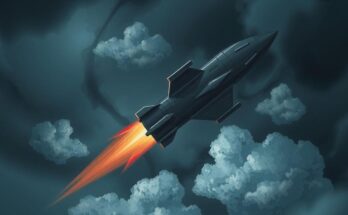The DRC crisis is driven by the M23 rebels’ land seizures, affecting regional dynamics. President Tshisekedi seeks to regain lost territories while accusing Rwanda of supporting M23. Rwanda’s Kagame deflects accusations, positioning the conflict as a defensive measure. Burundi and Uganda have complex roles, while South Africa’s peacekeeping efforts face tensions with Rwanda. The situation requires nuanced diplomacy among involved nations.
The ongoing crisis in the Democratic Republic of Congo (DRC) is largely driven by the M23 rebels’ seizure of significant territories in the eastern region, known for its rich mineral resources. This situation has escalated into both humanitarian and diplomatic crises, drawing in various neighboring nations. With a complex history of external interference, the DRC is now witnessing military presences from several African states as stakeholders seek to influence the outcome of the conflict.
President Félix Tshisekedi of the DRC aims to reclaim lost territories from the M23 and halt further incursions. He accuses Rwanda’s President Paul Kagame of backing the M23 rebels with military resources, claiming such actions are aimed at exploiting the DRC’s mineral wealth. Despite international diplomatic pressure for Rwanda to retreat, support for Tshisekedi remains largely rhetorical, stirring fears for his political stability as the M23’s advances may embolden dissent within his government.
President Kagame of Rwanda remains a key figure in this crisis. While denying direct support for the M23, he asserts the need for a strong defense against perceived threats stemming from armed groups within the DRC. Rwanda’s narrative positions the conflict as inherently Congolese, with efforts focused on eliminating the Hutu militia responsible for genocide in Rwanda. However, access to the DRC’s resources and maintaining influence over eastern regions remain central to Rwanda’s interests.
Burundi’s military involvement has largely been a direct response to security threats from Rwandan aggression. President Evariste Ndayishimiye has vocalized concerns that Rwanda’s territorial ambitions may extend into Burundi, thereby threatening regional stability. Burundi’s military presence in eastern DRC aims to confront conflicts instigated by M23 forces, reflecting its strategic focus on regime survival amid escalating regional conflicts.
Uganda’s position in the crisis is ambiguous, as it supports the DRC against specific threats while simultaneously being accused of enabling the M23. Although Uganda engages actively in combat against primarily Islamist insurgents, allegations suggest it facilitates M23 operations. This dual role could exacerbate tensions and complicate the already multifaceted conflict landscape, highlighting a delicate balance of power in the region.
South Africa has positioned itself as a peacekeeper in the region, contributing troops to support the DRC’s military efforts. However, this commitment has led to tensions, particularly after allegations arose regarding Rwandan forces being responsible for the deaths of South African soldiers. This situation has prompted an exchange of accusations between Rwandan and South African leadership, representing deeper fissures between regional alliances and complicating the peacekeeping mission in the DRC.
The Democratic Republic of Congo has a long-standing history of conflict, often exacerbated by external influences from neighboring countries such as Rwanda, Burundi, and Uganda. The M23 rebels’ advance signals another chapter in this tumultuous narrative, with each country’s domestic politics and regional aspirations shaping their engagement. The DRC’s vast mineral wealth remains a crucial focal point, drawing interest and potential intervention from regional powers, complicating stability efforts in the area.
The DRC crisis exemplifies the interplay of regional geopolitics, local insurgency, and international diplomacy. Countries like Rwanda and Burundi are implicated in seeking strategic advantages, while Uganda operates in a dual capacity to guard its interests. Meanwhile, regional alliances face strain, particularly with South Africa, complicating peacekeeping efforts. Ultimately, the resolution of the DRC conflict will require careful negotiation among multiple actors with divergent interests.
Original Source: www.bbc.co.uk




